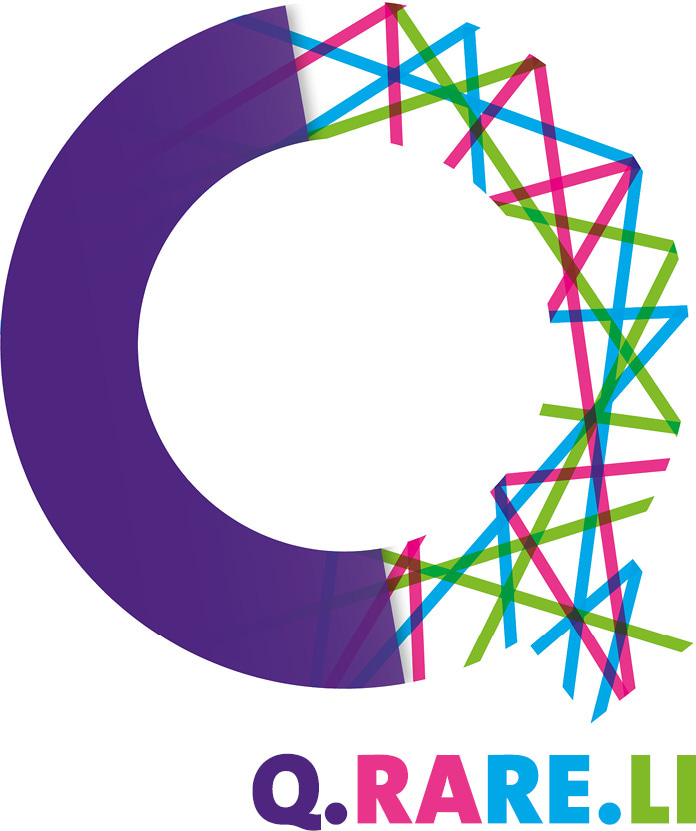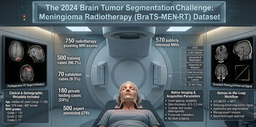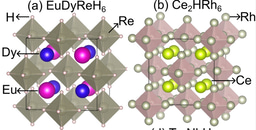Bridging the Gap: A New Approach to Psychosocial Support for Patients with Rare Diseases
Published in Sustainability, General & Internal Medicine, and Behavioural Sciences & Psychology

The Unique Challenges of Living with a Rare Disease
Living with a rare disease comes with a unique set of challenges. By definition, a rare disease affects fewer than one in 2,000 individuals, but collectively, there are several thousand different rare diseases impacting millions of people worldwide. Despite this large community, patients often feel isolated due to the low number of cases for each specific condition. Many face long and difficult diagnostic journeys, limited treatment options, and a lack of understanding from both healthcare professionals and society.
Beyond medical challenges, rare diseases take an immense emotional and psychological toll. The uncertainty surrounding these conditions, coupled with the difficulty of finding others who truly understand, can lead to increased levels of stress, anxiety, and depression. Research shows that individuals with rare diseases frequently experience higher rates of mental health struggles than the general population. However, while psychosocial support is a critical component of comprehensive care, it is largely unavailable for this patient group.
There are several reasons for this gap in care. Traditional support programs, designed for more common chronic conditions like diabetes or COPD, do not always address the unique struggles faced by those with rare diseases. The small and geographically dispersed patient populations make disease-specific support programs difficult to implement. As a result, patients with rare diseases are often left without the crucial emotional and psychological assistance they need.

A New Approach to Psychosocial Support: The Q.RARE.LI Program
Recognizing this gap, our team at the University Medical Center Hamburg-Eppendorf in Germany developed a structured, peer-delivered psychosocial support program tailored specifically for individuals with rare diseases. This program is designed to be transdiagnostic, meaning it is not limited to a single disease but instead focuses on common challenges shared by patients with different conditions. Additionally, it is location-independent, making it accessible to patients regardless of where they live.
The program consists of two main components: a six-week self-help manual based on Acceptance and Commitment Therapy (ACT) and peer-support. The manual covers crucial topics such as coping with emotions, accepting the disease, identifying personal values, and setting meaningful life goals. Each week, participants complete one chapter and additionally receive a 30-minute telephone session with a peer-counsellor, allowing them to reflect on the content with someone who shares their lived experience.
Peer-counselors, who are also individuals with rare diseases, undergo a two-day training program, which prepares them to guide these discussions. They are provided with consultation guidelines and receive supervision from psychologists or psychiatrists. This approach ensures that patients are supported by individuals who truly understand their struggles, creating a safe and empathetic space for exchange.
The program was initially tested in a clinical study with 89 patients from different rare disease groups. The results were very promising, showing improvements in mental quality of life, disease acceptance, coping abilities, perceived social support, and reduced helplessness. Encouraged by these findings, we launched the Q.RARE.LI study in 2022 to expand and further evaluate the program.
Looking Ahead: The Q.RARE.LI Study and Future Implementation
Q.RARE.LI is an international study designed to assess the program’s effectiveness across five different healthcare setting. The study not only measures how well the program works but also looks at how it can be successfully integrated into healthcare systems.
Since its launch in summer 2022, more than 250 patients with rare autoimmune liver diseases—Autoimmune Hepatitis (AIH), Primary Sclerosing Cholangitis (PSC), and Primary Biliary Cholangitis (PBC)—were recruited to participate across five countries. These conditions, like many rare diseases, are chronic, progressive, and incurable, with significant impacts on patients’ quality of life. Given their rarity, affected individuals often experience the same struggles seen in the broader rare disease community, making them a suitable population to test the program’s effectiveness.
The study consists of two groups: one receiving the structured peer-counseling intervention in addition to their usual care, and the other continuing with usual care alone. We assess outcomes such as mental health-related quality of life, depression and anxiety severity, perceived social support, helplessness, and disease acceptance at multiple points: before the intervention, immediately after, and three months later. Additionally, implementation outcomes are evaluated through surveys and focus groups involving patients, peer-counselors, and healthcare providers. The goal is to identify potential barriers and facilitators for integrating the program into standard healthcare systems and to develop country-specific implementation strategies.
The results of the Q.RARE.LI study will be available soon and will be shared with the research and patient communities. If successful, this intervention could serve as a scalable model for providing psychosocial support to a wide range of patients with rare diseases beyond those with rare liver conditions. The long-term vision is to expand the program to other rare diseases, ensuring that more patients have access to much-needed emotional and psychological support. If you are interested in learning more about the program and the study, check out the trial registration (ISRCTN15030282) or study protocol (Improving quality of life in patients with rare autoimmune liver diseases by structured peer-delivered support (Q.RARE.LI): study protocol for a transnational effectiveness-implementation hybrid trial | BMC Psychiatry | Full Text) and feel free to reach out!
No one should have to navigate a rare disease alone. Through innovative, accessible, and patient-oriented solutions, we can ensure that every affected individual receives the support they deserve.
Follow the Topic
-
BMC Psychiatry

This is an open access, peer-reviewed journal that encompasses a wide range of topics, including psychopharmacology, psychotherapy, and psychosocial approaches to psychiatric disorders, as well as genetics, pathophysiology, and epidemiology research.
Your space to connect: The Psychedelics Hub
A new Communities’ space to connect, collaborate, and explore research on Psychotherapy, Clinical Psychology, and Neuroscience!
Continue reading announcementRelated Collections
With Collections, you can get published faster and increase your visibility.
First episode psychosis: diagnosis, treatment, and outcomes
BMC Psychiatry welcomes submissions to our First episode psychosis: diagnosis, treatment, and outcomes Collection. This Collection aims to bring together research that advances understanding of first episode psychosis, from diagnostic challenges to treatment strategies and long-term outcomes. We welcome contributions that address clinical, biological, and service-level factors influencing trajectories following a first psychotic episode.
Topics of interest include, but are not limited to:
- Clinical presentation and diagnostic differentiation of first episode psychosis, including schizophrenia, schizoaffective disorder, bipolar disorder with psychotic features, depressive disorder with psychotic features, brief psychotic disorder, psychotic disorder Not Otherwise Specified (NOS), and drug-associated psychosis
- Vulnerability to psychosis, early warning signs, prodromal symptoms, and duration of untreated psychosis, and duration of untreated illness
- Pharmacological treatment strategies, including antipsychotic selection, dosing, posology, and side-effect management in early illness stages, early dose reduction/cessation
- Psychosocial, environmental, and coordinated specialty care interventions and their impact on outcomes
- Cognitive impairment, negative symptoms, and functional decline following a first episode
- Physical health, substance use, and comorbid conditions influencing treatment response
- Long-term outcomes, relapse prevention, and predictors of recovery
- Health service models, early intervention programs, and barriers to timely care
We invite original research that deepens insight into diagnosis, treatment, and outcomes following a first episode of psychosis. By integrating early-stage evidence with long-term perspectives, this Collection seeks to inform clinical practice, improve service delivery, and enhance outcomes for individuals experiencing psychosis for the first time.
All manuscripts submitted to this journal, including those submitted to collections and special issues, are assessed in line with our editorial policies and the journal’s peer review process. Reviewers and editors are required to declare competing interests and can be excluded from the peer review process if a competing interest exists.
This Collection supports and amplifies research related to SDG 3: Good Health and Well-being.
Publishing Model: Open Access
Deadline: Nov 13, 2026
Quality of life and recovery in schizophrenia
BMC Psychiatry is calling for submissions to our Quality of life and recovery in schizophrenia Collection. Beyond symptom control, enhancing quality of life and supporting meaningful recovery have become central goals of contemporary psychiatric care. This Collection aims to advance research that examines how clinical, social, and therapeutic factors influence quality of life and recovery in individuals diagnosed with schizophrenia and related spectrum disorders. We welcome contributions that move beyond symptom reduction to address functional outcomes, personal recovery, and sustained well-being across the lifespan.
Topics of interest include, but are not limited to:
- Determinants and measurement of quality of life in schizophrenia and schizoaffective disorder
- Clinical recovery versus personal recovery: conceptual models and outcome assessment
- Impact of positive, negative, and cognitive symptoms on overall functioning and social engagement
- Effects of antipsychotic treatments, long-acting injectable formulations, and adjunctive therapies on quality of life
- Psychosocial and community-based interventions supporting recovery, independence, and social inclusion
- Early intervention, duration of untreated psychosis, and long-term recovery trajectories
- Physical health comorbidities, premature mortality, and their influence on overall well-being
- Health system factors, stigma, and barriers to recovery-oriented care
- Patient-reported outcomes as complementary measures of recovery and subjective well-being
- Shared decision-making and patient engagement in recovery-oriented treatment planning
- Pharmacological optimization strategies and their impact on quality of life and everyday functioning
We invite original research that deepens understanding of how recovery and quality of life can be effectively promoted in schizophrenia. By integrating clinical evidence with patient-centered outcomes, this Collection seeks to inform practice, guide policy, and improve the lived experience of individuals affected by this disorder.
All manuscripts submitted to this journal, including those submitted to collections and special issues, are assessed in line with our editorial policies and the journal’s peer review process. Reviewers and editors are required to declare competing interests and can be excluded from the peer review process if a competing interest exists.
This Collection supports and amplifies research related to SDG 3: Good Health and Well-being and SDG 10: Reduced Inequalities.
Publishing Model: Open Access
Deadline: Nov 18, 2026



Please sign in or register for FREE
If you are a registered user on Research Communities by Springer Nature, please sign in